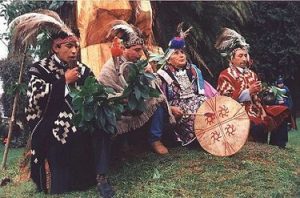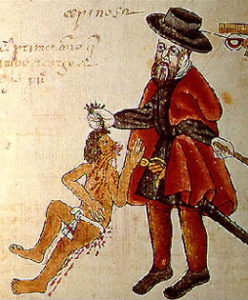Los Mapuches
Enculturation can be a free-lance enterprise. In the 18th century, Catholic missionaries would circulate among the native peoples of far southern South America and get to a settlement perhaps once a year or less. One group of these peoples was the Mapuche. They liked baptism.
Since priests presented them with gifts on the occasion of baptism, Mapuche parents found it advantageous to have their children baptized repeatedly, and, with passage of time, Mapuches came to think of baptism as an admapu – an ancestral custom.
But the Mapuche, although they liked the gifts, felt sorry for the missionaries who had to make exhausting and dangerous journeys to baptize. One Mapuche came up with a solution:
he asked “if it would suffice to baptize their penises, then all of their future children would be baptized and with this they [the Franciscans] would not have to tire themselves in travelling to Indian lands every year to baptize the little ones.” (David Weber Bárbaros)
The Franciscans thought the Mapuches were “poorly instructed,” unlike, presumably, the Spanish who managed to incorporate aggressive war and slavery into their religious system (despite the efforts of King and Pope).

